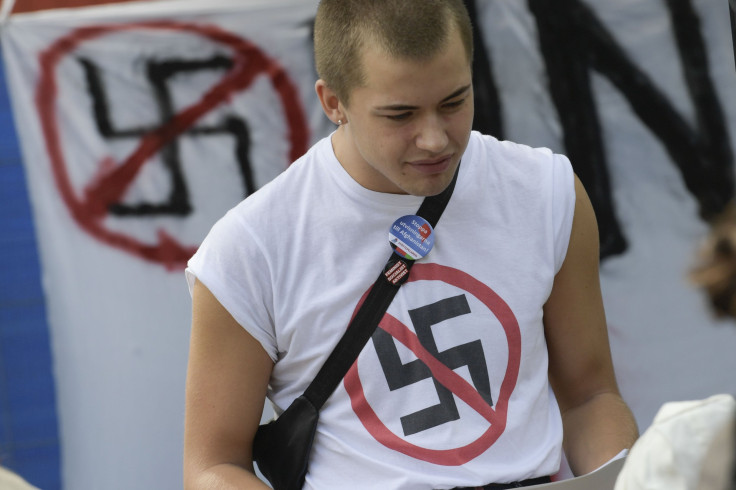Who Was Jakiw Palij? Nazi Guard Deported By US Dies At 95

A former Nazi labor camp guard, who was stripped of his U.S. citizenship and deported in August, died Thursday in a retirement facility in Ahlen, Germany, aged 95. The announcement was made by the U.S. ambassador in Berlin.
“Former Nazi prison guard Jakiw Palij has died in Germany,” Richard Grenell tweeted. “Removing the former Nazi prison guard from the US was something multiple Presidents just talked about – but President Trump made it happen.”
Palij had been living in a home for the elderly in the north-western German town of Ahlen, local media reported. The cause of death remains unknown.
Palij was accused of having lied to gain entry to the U.S. almost 70 years ago, claiming he was a Polish farmer. His citizenship, which he had been granted in 1957, was revoked in 2003 over his Nazi links. Before his deportation, the former guard lived in the Queens borough of New York City.
In August, Germany, citing its “moral duty,” took Palij in – despite him not possessing German citizenship. At the time Grenell praised Trump's leadership in helping to resolve the protracted legal dispute.
Jakiw Palij was the last Nazi facing deportation from the United States when he was taken from his Queens home on a stretcher and put on a plane to Germany. https://t.co/4P32jxkmgn
— TribLIVE.com (@TribLIVE) January 11, 2019
Here are some quick facts about Palij:
1. Palij admitted to Justice Department officials in 2001, he was trained at the SS Training Camp in Trawniki, in Nazi-occupied Poland in the spring of 1943. Men who trained at Trawniki reportedly “participated in implementing the Third Reich’s plan to murder Jews in Poland, code-named “Operation Reinhard.”
In November of that year, “some 6,000 Jewish men, women and children incarcerated at Trawniki were shot to death in one of the largest single massacres of the Holocaust.”
2. U.S. authorities had said that Palij played an "indispensible role" in ensuring Jews were killed.
3. A 2002 complaint was filed in U.S. District Court concerning Palij’s “wartime activities as an armed guard of Jewish prisoners at Trawniki, who were confined there under inhumane conditions.”
4. A deportation order was issued in 2004 to send Palij to “Ukraine, Poland or Germany, or any other country that would admit him.”
5. In 2014, nearly 150 people gathered in Queens for a protest rally outside the home of Palij, the last known Nazi criminal in New York, in commemoration of the 75th anniversary of Kristallnacht, according to reports.
6. While there were many who supported his deportation, several of his neighbors showed sympathy when he was being sent to Germany at the age of 95. One neighbor said he thinks Palij has regret for “what he’s done,” while another said Palij is “down to earth” and “unlike the image” of a Nazi.
© Copyright IBTimes 2025. All rights reserved.





















